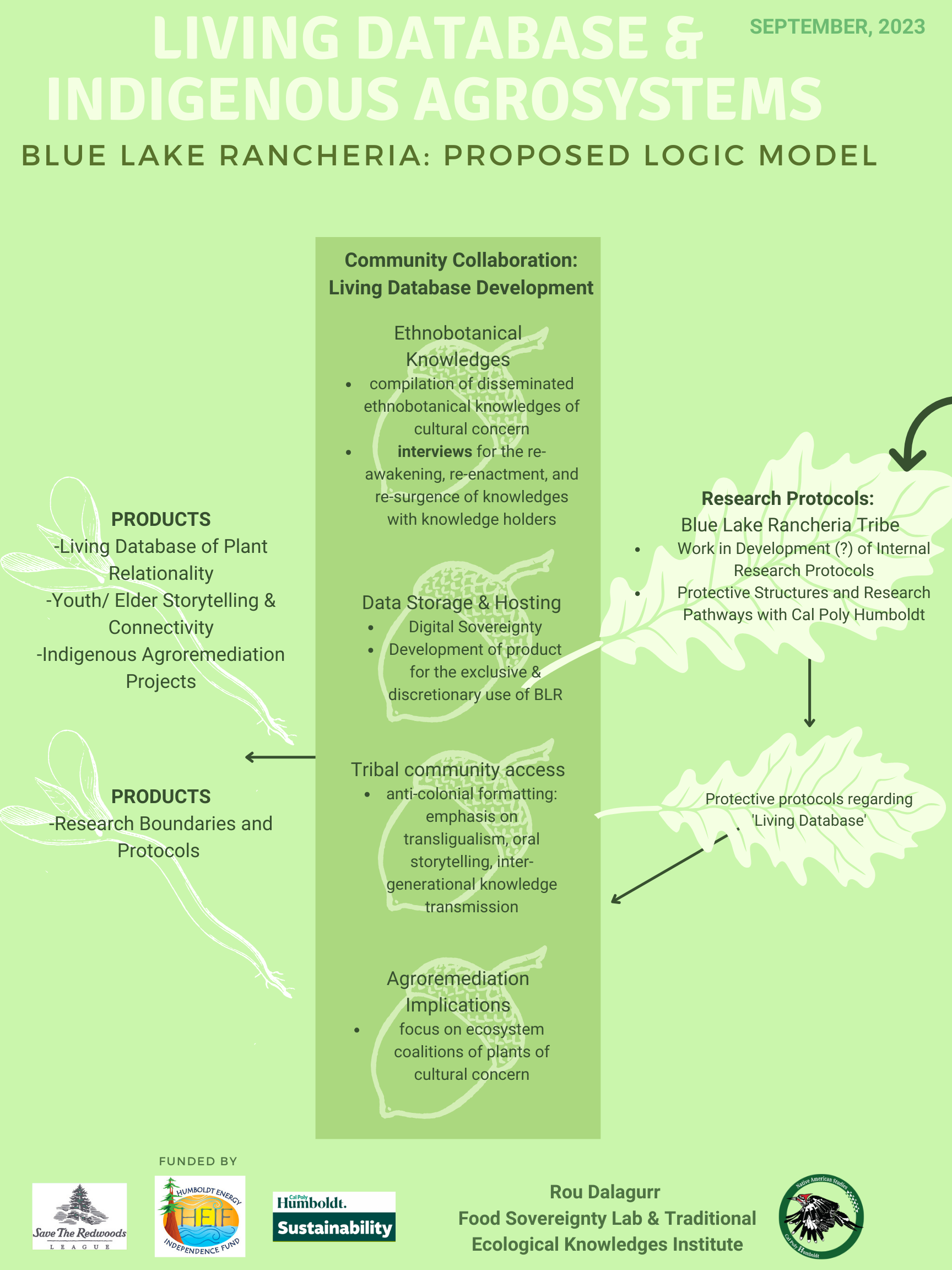Place Based Learning Practices

‘Place-Based Learning Practices: A Diptych Case Study of Human and More-Than-Human Relationality at the Tribal and western Academic Institutional Interface
The ‘Place-Based Learning Practices Project’ will make innovative scholarly contributions at the intersection of western academia and Indigenous science, imagining and realizing content, policies, and protocols surrounding two case studies, and the larger California Polytechnic University, Humboldt (Cal Poly Humboldt) institution which respect, honor, and uplift Indigenous sovereignty and resurgence in partnership with the Blue Lake Rancheria Tribe, and with other regional tribal community stakeholders. In a two-pronged approach to case-study products and projects that exist both within and exterior to the institution, we aim to address the construction of a controlled and protective environment for research with Indigenous science and traditional ecological knowledges. Internal projects of the institution addressed as a case study within the ‘Place-Based Learning Practices: Landscape (Hi)Stories of Wiyot Plaza’ will include the Ethnobotanical Mapping Project and the co-management of Wiyot Plaza. The protocol and processes surrounding access and engagement, and the presentation, housing, and content of the products through the lens of Indigenous Data Sovereignty will be addressed. The case study internal to the institution is not the subject of this report. External to the institution, we look to a case study with the Blue Lake Rancheria Tribe, which may include the development of a Tribal research protocol, production of a Living Database of Plant Relationality, and resulting informed projects in Indigenous agroremediation.
Both of these case studies will contribute to the overarching work of establishing appropriate community collaboration protocols and best practices for the larger campus community regarding Indigenous knowledges and sciences in place-based learning and research (see the logic map). This project will set precedent as Cal Poly Humboldt moves forward in working with Traditional Ecological Knowledges and Indigenous Sciences, and will offer case studies of how to manage information within protective structures, how to develop courses and learning practices, how to develop resources to support the health of relationships with the regional tribal community, and how to engage in research that serves the regional tribal community in a ‘Good Way’. This project is housed within the Native American Studies Department Rou Dalagurr Food Sovereignty Lab and Traditional Ecological Knowledges Institute (FSL), and is being completed by FSL Research Associate and affiliated graduate student, Karley Rojas, under the Principal Investigator Dr. Cutcha Risling Baldy. Karley Rojas is a student in the Environment and Community Graduate Program.
If you have any questions or feedback about this project, please contact Karley Rojas at kr228@humboldt.edu.
This project is funded by Native American Studies Department, Save the Redwoods League, Humboldt Energy Independence Fund, the Sustainability Department, and ARI-NEXTGEN Fellowship (USDA NIFA NEXTGEN grant to the CSU ARI).

